X Congreso Internacional Periodismo en Debate 2020
Journalism in the Times of Pandemic
Transformation, Reinvention, Resilience, and Adaptation for the Future Sustainability of the Profession
The Journalism department of the College of Communication and Contemporary Arts at USFQ, in collaboration with UTE University and the National Federation of Journalists, will host the tenth-anniversary edition of the country's largest journalism event, "Journalism in Debate," from Monday, November 9th to Saturday, November 14th, 2020. Due to the global coronavirus emergency, the congress will be conducted entirely in a virtual format.
This new cycle of conferences focuses on the central theme, "Journalism in the Times of Pandemic: Transformation, Reinvention, Resilience, and Adaptation for the Future Sustainability of the Profession." This congress aims to address the need for innovation in journalistic practice amid a global emergency.
The event aims to provide a platform for discussing the experiences of news coverage during the pandemic in Ecuador and the rest of America. Additionally, it will showcase sustainable examples of media entrepreneurship that have emerged and faced deep crises in traditional media outlets, along with their approaches to combating misinformation and infodemics during these times.
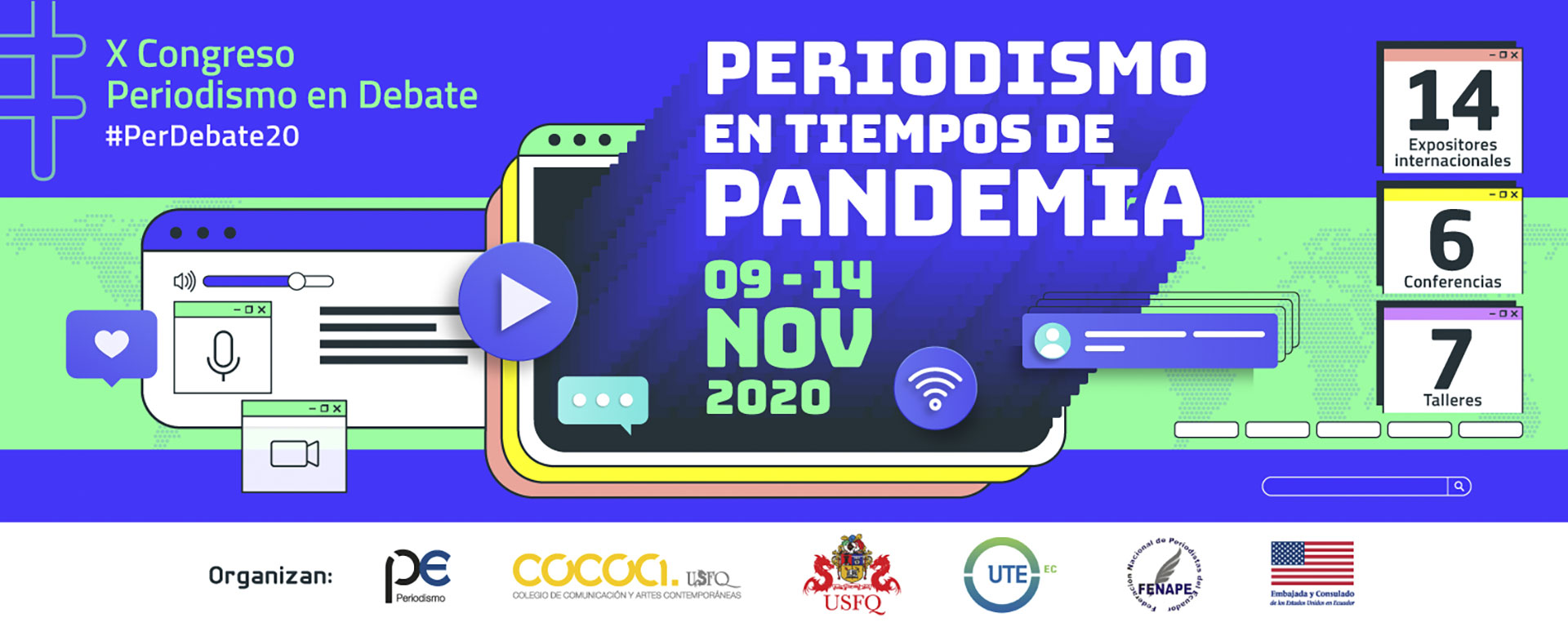
Directed to
- Communication and journalism professionals
- Experts in public policies and risk management
- University and high school students
- Journalism clubs from schools
- Academic and research community
- Individuals interested in new communication technologies and social media
- Scientific community and public opinion leaders
Objectives
General Objective:
To discuss adaptation, resilience, and reinvention in journalistic practices during the global pandemic with a focus on the sustainability of journalism in the future.
Specific Objectives:
- To delve into the practice of quality journalism in the coverage of emerging topics, pandemics, health, climate change, among others.
- To discuss technological innovations and new multimedia formats, which are central to current journalistic practices during confinement.
- To learn how to produce journalistic content beyond crime reports and routine news.
- To establish connections between the political, scientific, media, and citizen realms to combat the infodemic (misinformation during a pandemic).
Benefits for participants
The X Congress Journalism in Debate 2020 will provide a digital certificate free of charge to all participants who register for the scheduled conferences and workshops for the event.
Journalism in Debate promotes academic research and analysis, in which reflections on one or more of the following topics will be sought:
- The strategies, techniques, narrative formats, and content of the media to enhance the coverage of emerging topics.
- The emergence of new profiles of reporters, researchers, and editors for journalism with a focus on public interest related to health, misinformation, public policies, elections, and science.
- New formats for storytelling with attractive and audience-sensitive solutions in the increasingly digital era of the pandemic.
- The risks, work, and defense of journalists and activists in the coverage of the mentioned fields.
- How to educate students to avoid fetishism in health science journalism?
- Cases of excellence in journalism practice using new technologies.
- Collaborative and cross-border journalism in the coverage of emerging topics.
- Techniques and tools for journalism in the digital era from confinement.
- The evolution of journalism in the face of new technologies.
Congress virtual schedule:
- Conferences and forums from Monday, November 9th to Friday, November 13th, 08:30 to 10:00, and 17:30 to 19:00.
- Workshops and closing on Saturday, November 14th, from 09:00 to 11:00.
International Speakers
Daniel Meza
- Editor-in-Chief, N+1, Peru
- Background: Peruvian journalist with a master's degree in International Relations from the University of Nottingham.
- Expertise: Science and technology topics, with a focus on neuroscience, health, climate, history, futurism, and social sciences.
- Additional Roles: Professor, content marketing consultant, and coordinator of N+1's science communication training program. Founder of the Peruvian Association of Science Journalists and Communicators (APCiencia).
Lola Gómez
- Visual Journalist, Venezuela - USA
- Background: Visual journalist with a degree from the Southeast Center for Photographic Studies in Florida.
- Experience: Worked for publications such as the Orlando Sentinel, Daytona Beach News-Journal, and currently with the Austin American-Statesman in Texas.
Alberto Cairo
- Knight Chair, University of Miami
- Background: Journalist and designer teaching courses in infographics and data visualization.
- Roles: Director of the Center for Visualization, Data Communication, and Information Design at the University of Miami. Author of "How Charts Lie."
Ángela Posada Swafford
- Science Journalist, Colombia - USA
- Background: Science writer with degrees from the University of Los Andes and the University of Kansas.
- Experience: Worked for El Nuevo Herald, CBS TeleNoticias, The Travel Channel, and contributed to various publications including Discovery Channel and National Geographic Spanish.
Darwin Franco
- Journalist and Researcher, Guadalajara - Mexico
- Background: Journalist specializing in social violence and disappearances.
- Role: General Coordinator of the investigative journalism site ZonaDocs. Professor-researcher at the University of Guadalajara.
Alejandro Horvat
- Journalist at Diario La Nación, Argentina
- Background: Holds a Master's in Journalism from Torcuato Di Tella University.
- Notable Work: Investigated sexual abuse within the Argentine Catholic Church, earning the Group of Diarios de América (GDA) Award.
Janine Warner
- Co-founder and Executive Director, Sembra Media, USA
- Background: Knight Fellow at the International Center for Journalists, author of 25 books, and digital journalism pioneer.
- Roles: Co-founder of Sembra Media, taught at the University of Southern California, and served as Director of Internet Operations for The Miami Herald.
Luisa Torrealba Mesa
- Investigative Journalist, Venezuela
- Background: Journalist, researcher, and radio announcer with Master's and Bachelor's degrees in Social Communication.
- Roles: Researcher and lecturer at the Communication Research Institute (ININCO) of UCV, editor of Anuario ININCO, and member of the international research team of OBITEL.
Jesús Mesa
- Journalist at El Espectador, Colombia
- Background: Journalist with a degree in Social Communication from Pontifical Javeriana University.
- Notable*: International Journalist at El Espectador newspaper, pursuing a Master's in Political Science at the University of the Andes, and a recipient of the Rosalynn Carter Fellowship in Mental Health Journalism.
Carlos Eduardo Huertas
- Director of CONNCECTAS, Colombia
- Background: Founder of Connectas and a Nieman Fellow at Harvard University.
- Leadership: Leads the Investigative Journalism Initiative of the Americas at the International Center for Journalists (ICFJ). Played a pivotal role in founding the Colombian organization, Consejo de Redacción.
Natalie Van Hoozer
- Freelance Journalist and Sembra
Border Journalism Contest
Border Journalism Contest Rules in Ecuador
1. Introduction
The first Border Journalism Contest is convened with the aim of promoting better journalism in the border areas of Ecuador, the pursuit of excellence, innovation, safety, rigor in the treatment of facts, and ethical coherence on the part of journalists covering these areas as permanent residents, correspondents, or visitors.
This award is born in commemoration of the journalistic team from El Comercio newspaper who were kidnapped and killed on the northern border between Ecuador and Colombia between March and April 2018.
The "Border Journalism in Ecuador" contest is organized with the support of the journalism program at the College of Communication and Contemporary Arts (COCOA) at the University of San Francisco of Quito (USFQ). Additionally, it is financially supported by the Embassy of the United States of America in Ecuador for the awarding of cash incentives and equipment to the winners.
None of the allies, associates, or sponsors intervene in the regulations, call for entries, or management of the award. The contest collaborates with independent juries composed of distinguished journalists.
These rules constitute the regulations applicable to the first edition of the award, which is held in 2020.
2. Categories
In the contest mode, the Prize will be awarded for journalistic work carried out on both sides of the border areas of Ecuador, with Peru and Colombia, published by journalists of any nationality for the first time between January 1 and November 6, 2020.
Coverage topics may include political, economic, social, and cultural aspects. In addition, the COVID-19 pandemic situation is also included.
The contest submissions will be evaluated in three categories:
- Professional Audiovisual: for the author or authors of the best professional journalism work in radio or television published in national or international media. The application can be in any audiovisual format broadcasted on radio, television, or the web.
- Professional Web Press: for the author or authors of the best professional journalism work in written or digital press published in national or international media. The application can be in any written or web format transmitted on the Internet.
- Student: for the author or authors of the best student journalism work that has been published or not in media, university media, or social networks. The application can be in written format, as well as radio, television, or web formats.
- Permanence: For this first edition, the organizers want to recognize the constant work of journalists and/or media that have covered the border with their own publications continuously over the last year.
Any published or unpublished work with a variety of stories, topics, formats, and mediums can be entered in any of these contest categories, as long as they comply with the rules. The works may have been published in media outlets in Ecuador and worldwide established to operate professionally and continuously for the general public, whether commercial or non-commercial, such as, for example: commercial or academic publishers; newspapers or magazines; radio and television stations or networks; news agencies or journalistic research centers; blogs, microblogs, social networks, or journalism services based exclusively on the internet. The same concept applies to all categories.
The person registering the submission will decide in which of the three categories they want the journalistic work to be judged. In no case can the same work be registered in more than one category because the application parameters are very different in each case.
3. Evaluation Criteria and Awarding of the Contest Mode
Entries received in a complete and appropriate manner, as verified by the Technical Secretariat of the Prize, will be considered by the pre-selection committees and the (3) final juries designated to review the contestants. Each jury will choose three (3) finalists who will be invited, including the winner, to receive their recognition at the award ceremony on Saturday, November 14, 2020, at 11:00 a.m. The first winner and the order of the remaining two finalists will only be announced during the award ceremony of the Border Journalism in Ecuador awards.
To evaluate and make their decision, the juries in the 3 categories will rely solely on the materials received and follow the following general criteria:
- The narrative quality of the stories.
- Original reporting and research.
- The risk and difficulty of reporting true events.
- The plurality and contrast of sources.
- Rigor in the treatment of facts.
- Telling the complete story with clarity and depth.
- Independence and professional ethical values reflected in the works.
- The safety standards adopted in coverage.
For the evaluation of the three categories, the information provided in the different fields of the registration form will also be taken into account.
All entries must have been created and/or produced in the Spanish language (translations are not valid). This requirement also applies to photo captions.
Journalists can submit multiple works and in different categories, even collectively.
In the Permanence category, the consistency of border coverage with at least one publication per month in the last year will be evaluated. This recognition will only be awarded to one winner, whether a journalist, group of journalists, or media outlet.
4. Awards
All winners and finalists in the three categories will receive a diploma and a recognition plaque. All prizes will be mobile journalism (MOJO) equipment for cellphones.
CategoryPrize in MOJO equipment
Professional AudiovisualFirst place $400
Second place $300
Third place $200
Professional Web PressFirst place $400
Second place $300
Third place $200
StudentFirst place $300
Second place $200
PermanenceFirst place $700 (drone)
The equipment prizes will be delivered within forty-five (45) days after the award ceremony. Security protocols will be established for the delivery due to the global pandemic emergency.
Winners and finalists will be invited to participate in the award ceremony, workshops, and activities scheduled from November 9 to 14, virtually during the X International Journalism in Debate Congress 2020.
5. Contestant Registration
Contest submissions must be registered on the Prize platform (https://bit.ly/3lrSVX1) from the Periodismo en Debate International Congress website until November 8, 2020, within the specified deadline, providing the information, documents, and materials required in accordance with the presentation rules for each category.
Third parties may recommend works for the contest, providing the work reference and contact information of the media or authors through the organizers' email addresses esamson@usfq.edu.ec and torbe@usfq.edu.ec, so they can be invited to register their work. Only works that are registered in full through the Border Journalism in Ecuador contest registration platform will be valid for the contest.
The organizers of the Prize may verify the information provided in the registration with the applicant or third parties or request additional information. In case of establishing a case of falsehood or significant inaccuracy, disqualification will occur, and if necessary, the decision to award or select as a finalist will be revoked. The information of all works entering the final phase will be verified.
By registering, contestants guarantee to the organizers of the Prize that they are the full copyright holders of the works and journalistic initiatives submitted to the contest, or that they have previously obtained the necessary permissions or agreements from the copyright holders to participate and allow the publication and dissemination of the contest entries in accordance with these rules.
Since all registrations are electronic, only PDF documents or links to published works will be accepted. No printed materials or documents will be accepted.
6. Additional Rules
- Prizes will not be divided.
- Winner or nominee positions may be declared vacant.
- For the winner or finalist condition in any category to take effect, written acceptance and confirmation of attendance at the award ceremony are essential. In case of non-acceptance or unjustified absence, the organizers will decide whether to allow a replacement or to declare the position vacant.
- The act of registration commits the applicants to the rules and results of the contest and implies an express authorization for the publication, from the registration closing date onwards, in any language and for any territory, on the internet site dedicated to the Prize or on other digital, printed, or audiovisual media, directly or through third parties, for essentially informative and educational purposes, of all or part of the contest entries, especially those of the winners and nominees. This authorization does not imply the transfer of intellectual property rights.
- The organizers of the contest, i.e., the teachers Eric Samson and Tania Orbe, coordinator, and professor of the journalism program at USFQ, cannot participate or be awarded.
7. Registration Deadline
Registrations will be open until Sunday, November 8 at 11:59 p.m. (-5 UTC).
8. Clarifications, Modifications, Interpretation, and Regulations
The organizers of the Prize will coordinate the management of the different processes of the Prize, be responsible for resolving queries and requests for clarification of these rules, and may publish their responses if they consider it useful for better understanding and application.
These rules were adjusted on Thursday, October 8, 2020, due to the global coronavirus pandemic.
10. Official Contacts
Mailing Address:
University of San Francisco de Quito
Cumbayá Campus
Address: Av. Diego de Robles and Vía Interoceánica
Phone: (+593 2) 297-1700
Fax: (+593 2) 289-0070
P.O.BOX: 170901
Quito, Ecuador
Contact Information for the Organizers:
Eric Samson, journalism program coordinator, esamson@usfq.edu.ec Phone: (+593 9) 99 970 2678.
Tania Orbe, journalism program professor, torbe@usfq.edu.ec. Phone: (+593 9) 99 682 3897.
Social Media:
Facebook: USFQ Journalism
Twitter and Instagram: Journalism USFQ, @samsonequateur, @taniaorbe
Hashtags: #BorderJournalismEC
IMPORTANT NOTE
These contest rules have been developed taking into account the parameters of the Gabriel García Márquez Ibero-American New Journalism Foundation (FNPI), which awards the GABO awards, the highest recognition in Ibero-American journalism for the past 7 years.
Agenda
PERIODISM IN TIMES OF PANDEMIC
Transformation, reinvention, resilience, and adaptation for the sustainability of the profession in the future.
Virtual format via Zoom Platform.
Link 08:30: https://usfq.zoom.us/j/82132880287
Link 17:30: https://usfq.zoom.us/j/84113800107
Monday to Friday Schedule: 08:30 to 10:00 and 17:30 to 19:00
Saturday Workshop Schedule: 09:00 to 11:00
Closing on Saturday: 11:00 to 11:30
Monday, November 9, 2020
-
08:15-08:20: Inauguration of the X edition of "Periodismo en Debate"
Main Theme: "PERIODISM IN TIMES OF PANDEMIC"
Speaker: Santiago Castellanos, Dean of the College of Communication and Contemporary Arts at the University San Francisco de Quito (USFQ). -
08:20-08:25: Welcome by Susana Piedra, President of the National Federation of Journalists (FENAPE), and Álvaro Pazmiño, Director of the Journalism program at the University UTE.
-
08:30-08:35: Opening remarks by Ryan Matheny, Spokesperson & Press Attaché of the Embassy of the United States.
-
08:30-10:00: Forum 1: "How to sustain journalism economically in emerging times?"
Participants: Elizabeth Salazar, Investigative Journalist and Data Analyst (Ojo Público); Natalie Van Hoozer, Freelance Journalist (Sembra Media); Fabiola Torres, Director and Founder (Salud con lupa); Catalina Colmenares, Regional Director for Latin America (Media Development Investment Fund - MDIF); Carlos Andrés Vera, Editor (Scorpio Ecuador)
Moderator: Eric Samson, Coordinator of Journalism at USFQ. -
17:30-19:00: Forum 2: Keys to producing good journalism in the midst of a pandemic, within the framework of Project Disinformation Covid19 Forum 12.
Panelists: Darwin Franco, Journalist and Researcher (Mexico); Luisa Torrealba Mesa, Investigative Journalist (Venezuela); Jesús Mesa, Journalist at El Espectador (Colombia); Alejandro Horvat, Journalist at Diario La Nación (Argentina); Carlos Eduardo Huertas, Director of CONNECTAS (Colombia); Ángela Meléndez, Journalist at Sin Cadenas (Ecuador).
Moderator: Tania Orbe, Professor of Journalism at USFQ.
Closing of Day 1
Tuesday, November 10
-
08:15-08:25: Attendance registration.
-
08:30-10:00: "10 Things I Learned as an Editor-in-Chief and Entrepreneur in a Latin American Science Medium." Speaker: Daniel Meza, Director of the scientific medium N+1.
-
10:00-11:00: "Sustainable and Successful Journalistic Entrepreneurship in a Pandemic." Speaker: Janine Warner, Co-founder and CEO of Sembra Media.
-
17:30-19:00: "Scientific Journalism and Society in the Time of Covid-19." Speaker: Ángela Posada Swafford, Freelance Science Journalist.
Closing of Day 2
Wednesday, November 11
-
08:15-08:25: Attendance registration.
-
08:30-10:00: "When Coverage Gets Personal: A Photographic Journalist's Experience with COVID-19." Speaker: Lola Gómez, Visual Journalist.
-
17:30-19:30: "How Graphs Deceive Us?" Speaker: Alberto Cairo, Chief Professor of Visual Communication at the University of Miami.
Closing of Day 3
Thursday, November 12
-
08:15-08:25: Attendance registration.
-
08:30-10:00: "How Ecuadorian Journalism has Changed During the Pandemic?" Presentation of the Interuniversity Media Observatory (OIME) and its research results within the framework of the Disinformation Covid19 project.
Participants: Pamela Cruz, Sofía Cabrera, Fanny Herrera (Faculty members at UTE); Tania Orbe (Faculty member at USFQ and her research team); Camila Villacrés, Melissa Clavijo, Margarita Cadena, and Daniela Reinoso. -
17:30-19:00: Forum 3: "Economic Reactivation in Independent Journalism and Labor Legislation in Telecommuting."
Panelists: Karol Mosquera, Freelance Journalist at Diario Los Andes; Ramiro Borja, Labor Lawyer; Patricio Sánchez, Economist.
Moderator: Danilo Villarroel, Professor at the University Estatal de Bolívar and Founder of Nuevo Diario de Riobamba (FENAPE).
Closing of Day 4 - Friday, November 13
-
08:15-08:25: Attendance registration.
-
09:00-11:00: Workshop 1: Tips for Leading Successful Journalistic Ventures. Instructor: Janine Warner, Co-founder and CEO of Sembra Media.
Workshop Link: https://usfq.zoom.us/j/87130412699 -
17:30-19:30: Presentation of the monographic series #PerDebate Vol. 4 and other journalistic publications.
Closing of Day 5
Saturday, November 14
-
08:50-09:00: Attendance registration and welcome.
-
09:00-11:00: Simultaneous Workshops (maximum 25 participants in each workshop).
Workshop 2: Tips for Good Photojournalism. Instructor: Lola Gómez, Visual Journalist.
Workshop Link: https://usfq.zoom.us/j/87252208474Workshop 3: Data Journalism to Understand the Pandemic. Instructor: Paúl Mena, Diario el Universo.
Workshop Link: https://usfq.zoom.us/j/83513522141Workshop 4: Narrative Scientific Journalism: Using Storytelling to Communicate Science. Instructor: Ángela Posada Swafford, Science Journalist.
Workshop Link: https://usfq.zoom.us/j/89551155678Workshop 5: Epidemiology for Journalists: Key Concepts. Instructor: Rodrigo Henríquez, Epidemiologist at UDLA.
Workshop Link: https://usfq.zoom.us/j/88063771829Workshop 6: Keys to Building High-Impact Investigative Journalism Projects (10:00 to 11:00). Instructor: Carlos Eduardo Huertas, Director of CONNECTAS.
Workshop Link: https://usfq.zoom.us/j/85704383114Workshop 7: Freelance Journalism and Entrepreneurship in Times of Pandemic. Instructor: Natalie Van Hoozer, Freelance Journalist at Sembra Media.
Workshop Link: https://usfq.zoom.us/j/81054607723 -
11:00-11:30: Conclusion of the conference "PERIODISM IN TIMES OF PANDEMIC: Transformation, Reinvention, Resilience, and Adaptation for the Sustainability of the Profession in the Future."
Closing and invitation to the XI edition of "Periodismo en Debate."
Presentation of Awards for the First Border Journalism Contest in Ecuador.
For contact with conference organizers, call 2971700 ext.1563 / 1960:
Eric Samson (+593 99 970 2678 / esamson@ecnet.ec, esamson@usfq.edu.ec)
Tania Orbe (+593 99 682 3897 / torbe@usfq.edu.ec, taniaorbe@gmail.com)
More information will be available on the social media pages of the co-organizers (the Multimedios Journalism Area of USFQ, UTE, and FENAPE):
Facebook: https://www.facebook.com/PeriodismoMultimedios
Twitter: @PeriodismoUSFQ, @samsonequateur, @taniaorbe, @UTEoficial, @UTEDerechoyCCSS, @FenapeFip, @susypiedra, @FIP_AL
Instagram: periodismousfq
National Speakers
Rodrigo Henríquez
Epidemiologist
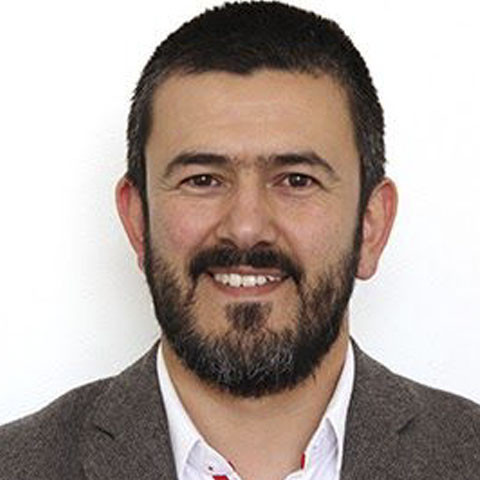
Medical specialist in family medicine and health economics evaluations. Expert in the assessment of health technologies, clinical epidemiology, shared decision-making, and patient-centered healthcare. Associate Professor 1 at the Faculty of Medical Sciences of the University of Las Americas, teaching Bioethics and Physician-Patient Relationship. Experience in developing and implementing evidence-based medicine training programs, clinical research, medical education, and advanced obstetric life support in various countries.
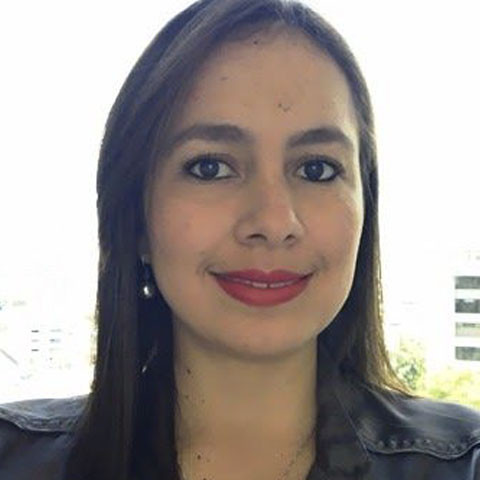
General Editor of Gestión Magazine and political director of Consultora Multiplica. Communication for Development professional and professional journalist, master's degree in Agency Journalism from the University Rey Juan Carlos in Spain, and current UNIR fellow. Experience in local and international media and as a university lecturer. Editor of books and academic articles. Collaborator of Diners Magazine and openDemocracy. Member of the Periodistas sin Cadenas collective.
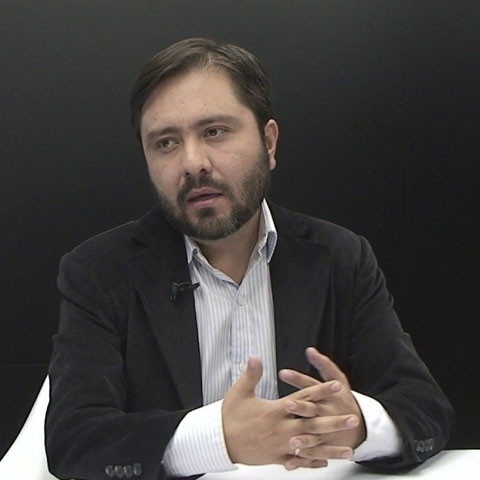
Journalist at El Universo Newspaper. Lecturer at UTE. Winner of the National Journalism Award 'Eugenio Espejo' in 2017.
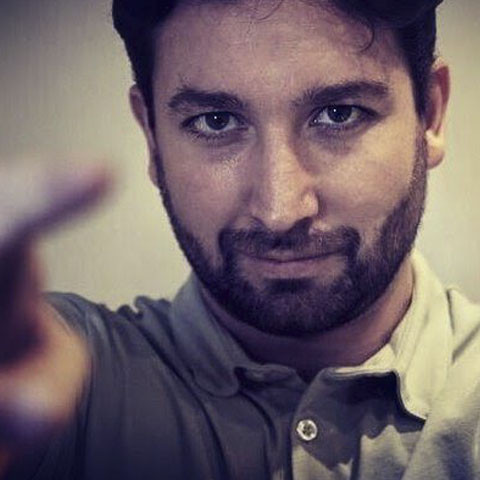
Studied Audiovisual Communication at UNIACC (Santiago-Chile) and specialized in Film Direction at the International School of Film and Television (San Antonio de los Baños - Cuba). In 2002, he founded his Communication company, CAMARA OSCURA, mainly dedicated to strategic communication. Currently working as an editor at Scopio. He has participated in various political strategy workshops and worked as a communication director in political campaigns. He has directed several short films and documentaries. He briefly worked in TV as a producer and director of the special program "Niño Esperanza," in collaboration with Unicef and Ecuavisa, in 2008. He is passionate about all fields of communication and strategy. As an editor, he practices journalism daily.
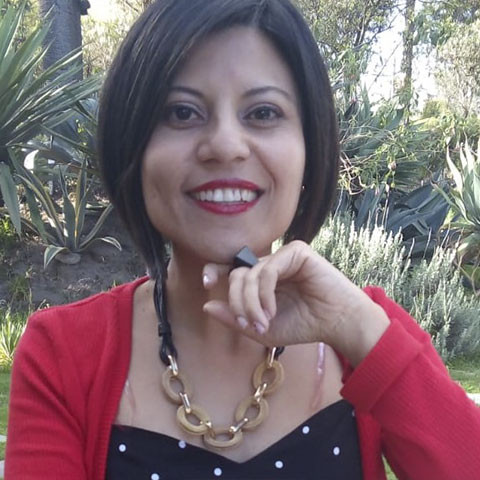
Journalist, university lecturer in Ecuadorian undergraduate and postgraduate programs, and communication researcher. Currently pursuing a doctorate in Audiovisual Communication at the University of Malaga. Since 2009, as part of the International Center for Advanced Communication Studies for Latin America (Ciespal), she has been involved in communication research, with her interests focusing on reception and audience studies, open television, migration, and communication. She is the author and co-author of several books.
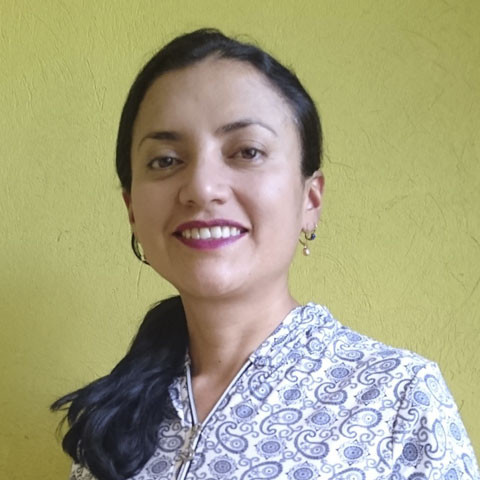
News correspondent in Ecuador for the English network on science and development, SciDev.Net. Collaborates with the digital magazines Plan V and Latinamericanscience.org. Holds diplomas and a master's degree in Public Communication of Science and Technology. Worked as a research writer in health, society, and economy for the newspaper Expreso and the magazine Vanguardia in Ecuador. She was part of the founding team of Vanguardia in 2005. She won the First Hackathon of Scientific Journalism in Mexico, with the regional project "Explora a Conciencia," in collaboration with four journalists from Chile, Colombia, and Mexico.
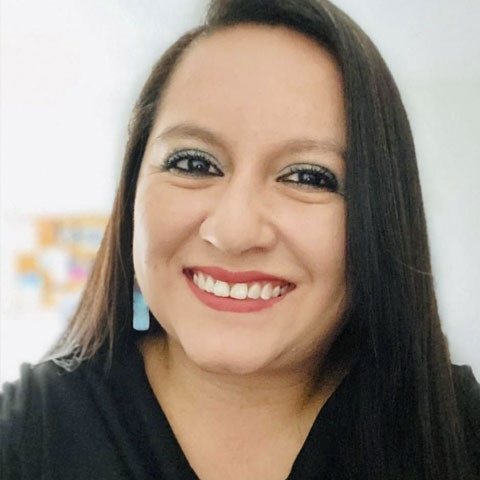
A communicator by nature and a scientist by coincidence. University lecturer in the Journalism program at the University UTE and Co-founder and Coordinator of 'KUNA,' a Community of Knowledge and Ancestral Scientific Disseminators in Ecuador. She is a candidate for a Ph.D. in Logic and Philosophy of Science at the University of Salamanca, holds a master's degree in Social Studies of Science and Technology, also from the University of Salamanca, and is a social communicator from the Central University of Ecuador.
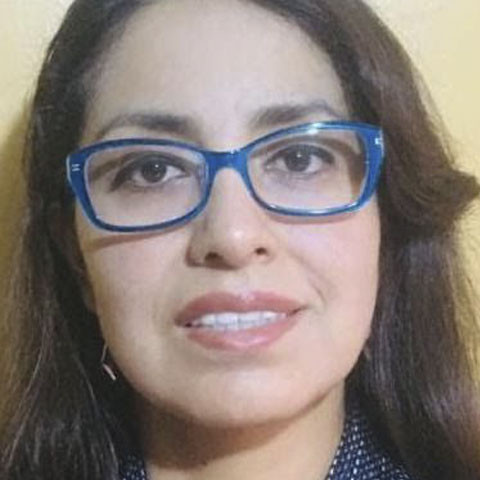
Part-time researcher and lecturer at the Faculty of Law and Social Sciences, invited lecturer in the Higher Specialization in Education and New Information and Communication Technologies at the Andean University Simón Bolívar (UASB), and a member of the Research Group, Diversity, Inclusion, and Coexistence. She is a Ph.D. candidate in Social Communication at the University of La Plata (UNLP), holds a master's degree in Cultural Studies from UASB, specializes in Journalism from UNLP, Communication and Gender, and has a degree in Communication for Development from the Salesian Polytechnic University.
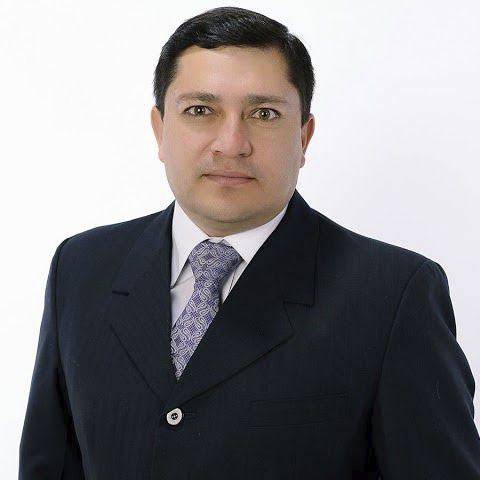
Winner of the National Eugenio Espejo Award in 2010, awarded by the National Union of Journalists of Ecuador. He founded the Nuevo Diario de Riobamba. He was a fellow of the Ibero-American Institute of Journalism José Martí in Cuba and holds a master's degree in Corporate Communication. Currently, he is a communication lecturer at the State University of Bolívar.
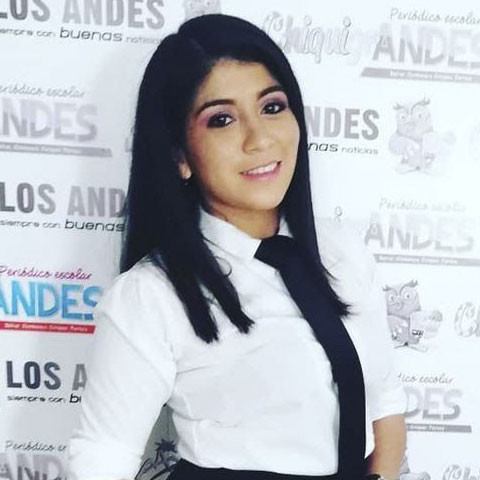
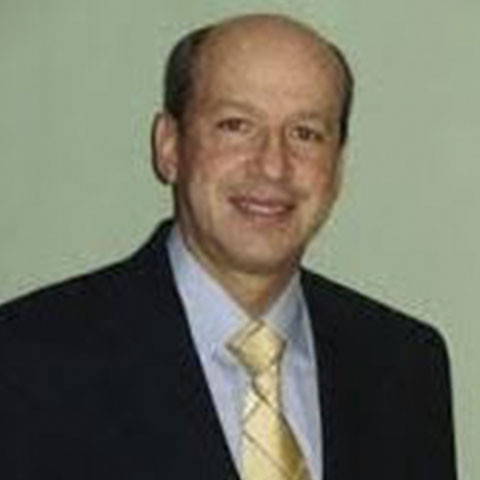
Founding Partner of the Borja and Borja Law Firm, with extensive experience in Constitutional Law, Petroleum Law, Mining Law, Energy Law, Environmental Law, Civil Law, Commercial Law, and Administrative Law. Has held various positions in both the public and private sectors.
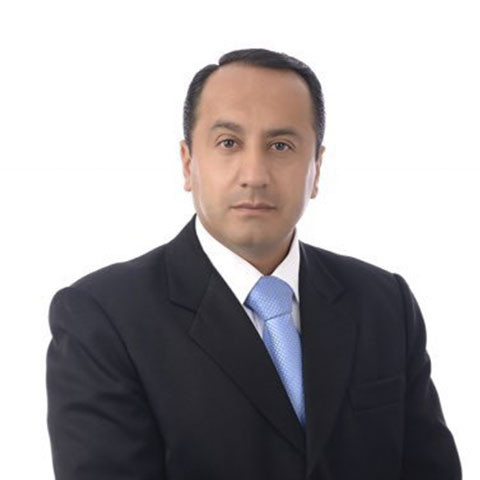
Economist, Lawyer, M.D.E. Dean of the Faculty of Political and Administrative Sciences at the National University of Chimborazo.
University professor of Investigative and Data Journalism. He has collaborated on several international projects, including "The Panama Papers," which received a Pulitzer Prize. In 2016, he received the Investigative Journalism in the Americas Award, presented by the International Center for Journalists (ICFJ) and Connectas, for collaborative work done by El Nuevo Herald (Miami), Armando.Info (Venezuela), and El Universo (Ecuador). In 2017, he was honored with the National Journalism Award Eugenio Espejo. He completed a master's degree in Digital Journalism at the University of Strathclyde (United Kingdom) and another in Cultural Studies with a focus on Hispanic American Literature at the Andean University Simón Bolívar (Ecuador).
Organizers
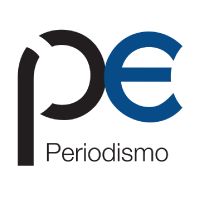
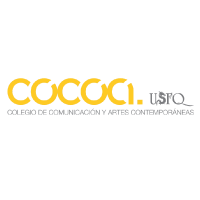
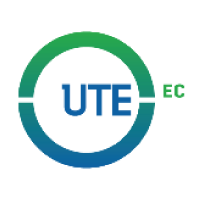
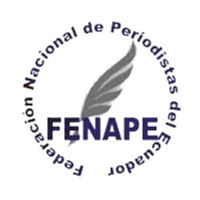
With the support of:

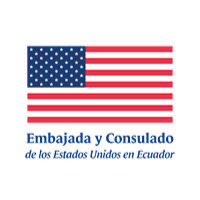
More information
Eric Samson
USFQ Journalism Coordinator
099 970 2678
esamson@ecnet.ec
Tania Orbe
USFQ Journalism Professor
099 682 3897
torbe@usfq.edu.ec
Pamela Cruz
UTE Journalism Lecturer
099 857 9600
pamela.cruz@ute.edu.ec
Susana Piedra
FENAPE President
098 900 5003
susananydia@hotmail.es
Workshops
Workshop 1: More Money, More Independent Journalism: How to Develop Revenue Sources for a Sustainable Media
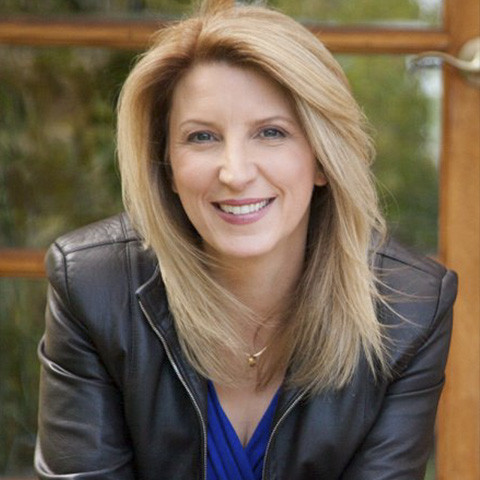
Instructor: Janine Warner, Co-founder and CEO of SembraMedia (USA)
Whether you're planning to launch a new media outlet or already have one, in this workshop, you will learn how to develop various revenue sources to initiate, sustain, and grow a digital media platform. The workshop is based on real case studies and SembraMedia's research spanning over 5 years.
Workshop 2: Tips for Outstanding Photojournalism
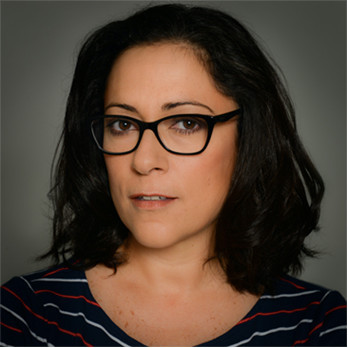
Instructor: Lola Gómez, Visual Journalist (Venezuela - USA)
Workshop 3: Data Journalism to Comprehend the Pandemic

Instructor: Paúl Mena, Journalist from Diario el Universo (Ecuador)
Workshop 4: Narrative Scientific Journalism: Using Storytelling to Communicate Science
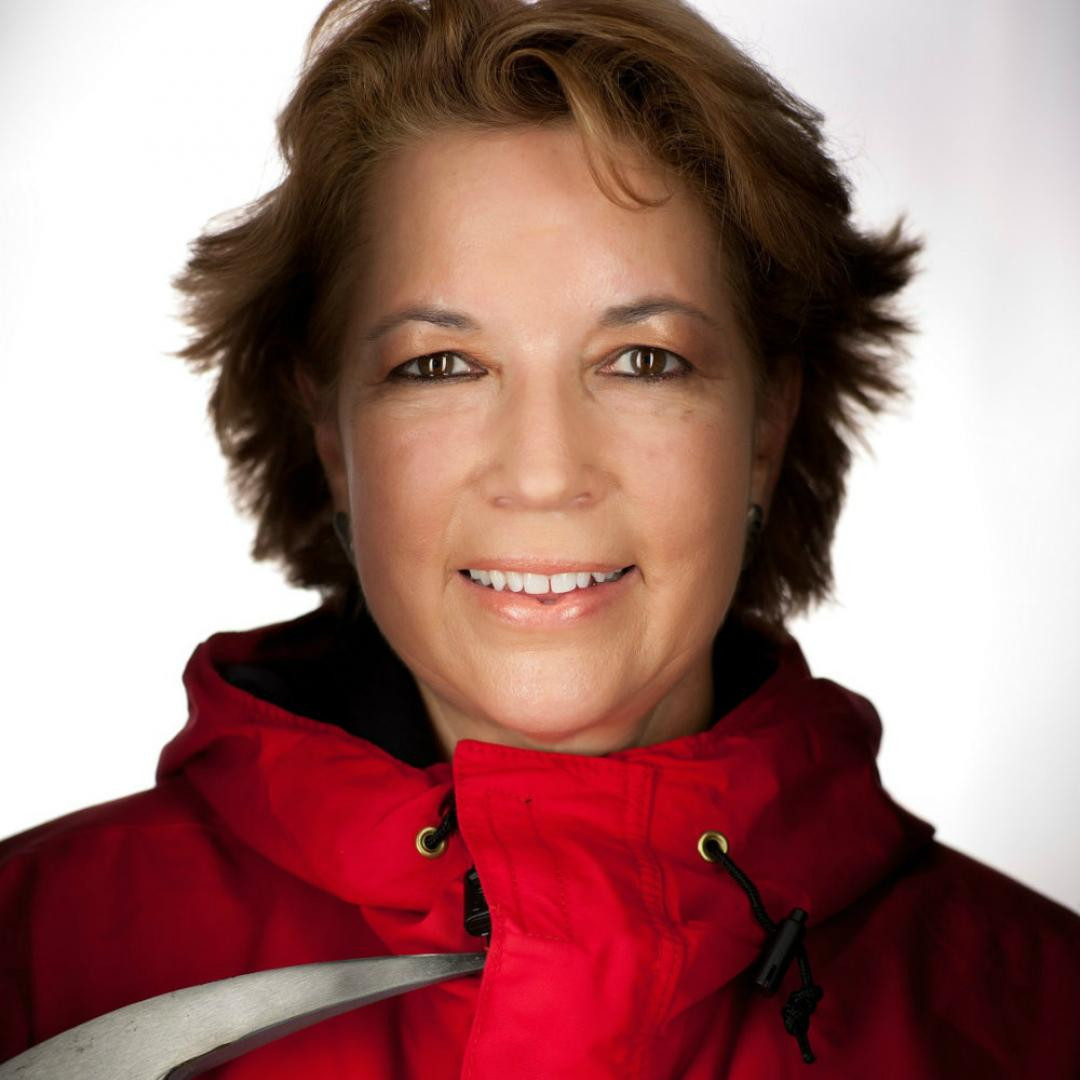
Instructor: Ángela Posada Swafford, Science Journalist (Colombia - USA)
What is the role of a science journalist and their relationship with researchers, how to understand and bridge these two worlds? How to find compelling stories, how to engage and capture the attention of our audiences through narrative scientific journalism, more than just "breaking news." Discovering your own voice, style, and way to transform media coverage of science, technology, and exploration.
Workshop 5: Epidemiology for Journalists: Key Concepts

Instructor: Rodrigo Henríquez, Epidemiologist at UDLA (Ecuador)
Workshop 6: Keys to Building High-Impact Investigative Journalism Projects
Instructor: Carlos Eduardo Huertas, Director of CONNECTAS (Colombia)
Workshop 7: Freelance Journalism and Entrepreneurship in Pandemic Times
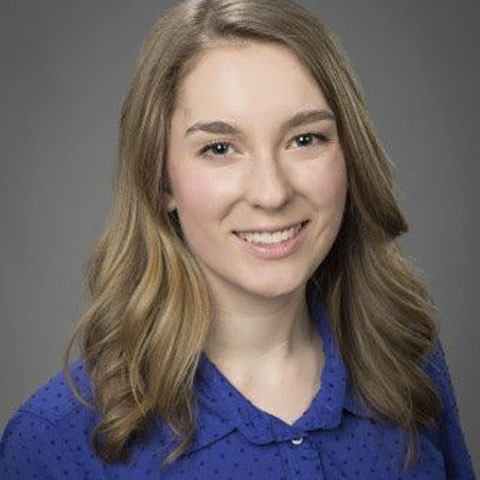
Instructor: Natalie Van Hoozer, Freelance Journalist and SembraMedia Ambassador (USA)
Multimedia freelance journalist Natalie Van Hoozer, who is also a SembraMedia Ambassador in the United States, will discuss tips for working as a freelance journalist and as a journalist-entrepreneur during the pandemic. She will also share ideas on how and where to apply for grants that can finance your projects. This workshop will be a space to share experiences and think about how to do independent journalism in these times.

